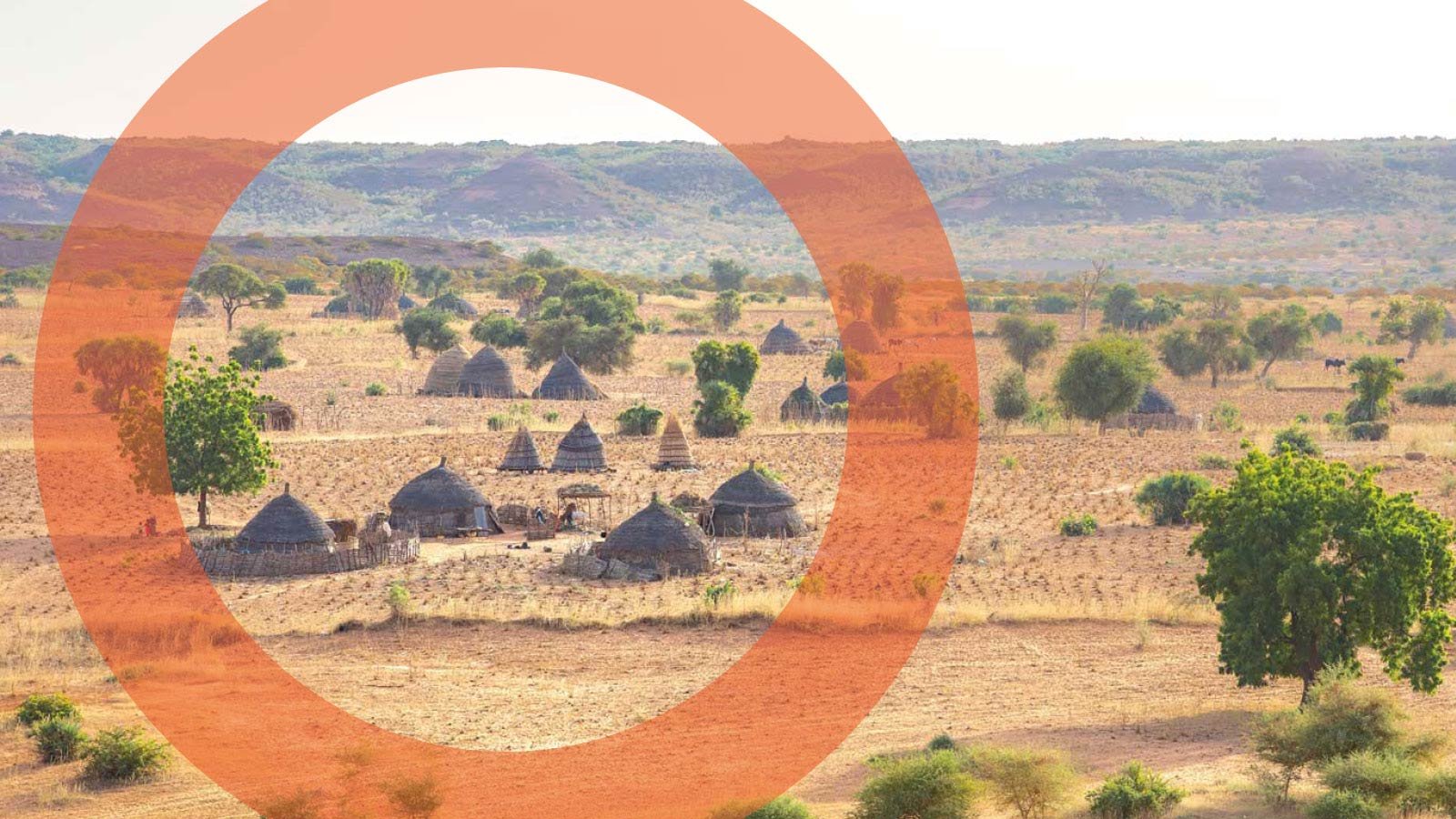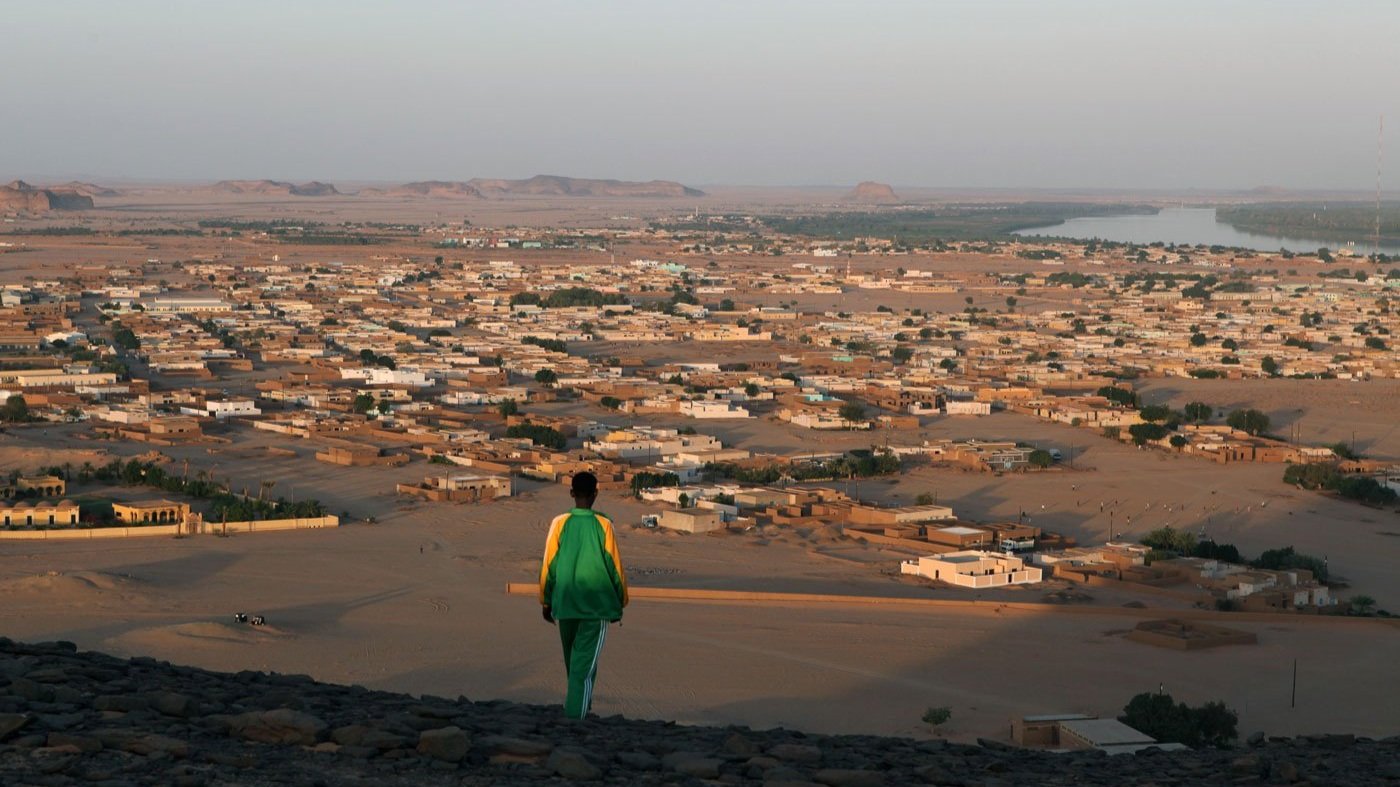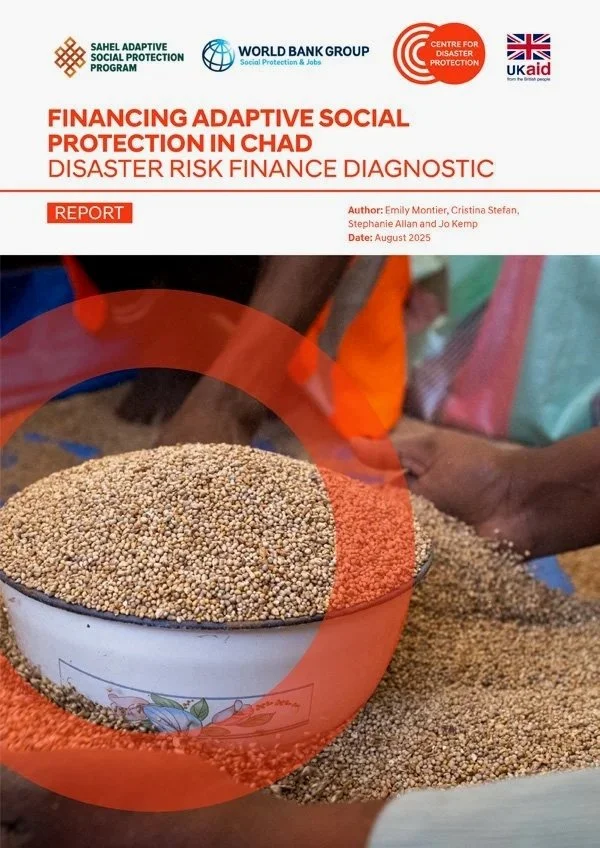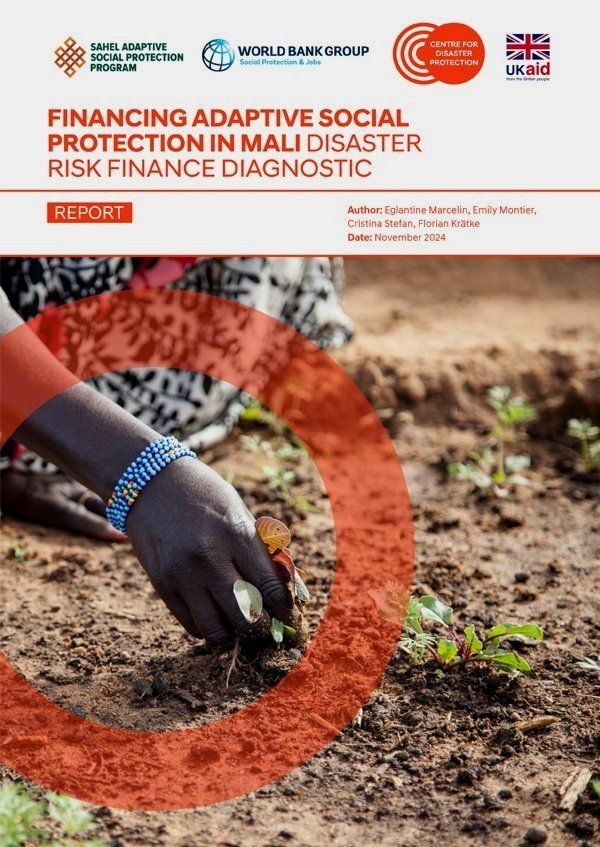
Disaster risk finance for adaptive social protection in the Sahel
Growing numbers of persons living in the Sahel – the semi-arid region of Africa that covers large parts of Burkina Faso, Chad, Mali, Mauritania and Niger – are increasingly exposed to climate variability and its effects including drought, heat stress, floods, food insecurity and malnutrition.
Poverty, conflict and insecurity compound these risks, while governments have limited fiscal space to respond. With humanitarian assistance often falling short, vulnerable households are forced into displacement or damaging coping strategies.
UNDERSTANDING THE CHALLENGES
Social protection coverage across the Sahel remains very low. Investments in national safety-net programmes, including adaptive components such as Unified Social Registries, provide a foundation for potential scale-up in response to shocks—though coverage remains limited.
Existing tools, such as the Cadre Harmonisé and National Response Plans (PNRs), allow governments to anticipate and respond to food crises, benefiting from strong leadership and national ownership. Other types of crises—such as floods—require further investment to develop similar operational frameworks.
Financing instruments exist, including domestic contingency funds and macro-insurance policies, but they are rarely linked to adaptive social protection systems. Bridging this gap will require data-informed processes for triggering funds, potentially leveraging existing mechanisms. Continued donor support will be essential, and strengthened national reserve funds could serve as a channel while maintaining government ownership.
The Sahel Shock Response Programme
From 2021 to 2024, the Centre worked with governments and partners across the Sahel to support the World Bank’s Sahel Adaptive Social Protection Programme (SASPP).
This work was part of FCDO’s five-year Sahel Shock Response Programme (SRP), which aims to strengthen national social protection systems’ ability to anticipate and mitigate the impacts of shocks.
The Centre provided specialised advisory support to help governments design and implement strategies for financing adaptive social protection.
Supported by £3m in UK Aid, the Centre:
Strengthened national social protection systems to adapt to climate shocks;
Helped governments design financing strategies for adaptive social protection; and
Expanded coverage so that more vulnerable people could be reached.
Connecting early warning, finance and social protection can strengthen resilience for those most exposed to climate shocks.
Key lessons
Over three years generating evidence on how disaster risk finance can strengthen adaptive social protection in fragile, climate-affected contexts, we’ve identified five key lessons:
Foundations are strong but uneven: Investments in national safety nets and unified social registries provide a base for scaling support, though coverage remains low — from 2.5% of the population in Chad to around 20% in Niger.
Food crises better prepared than other shocks: The Cadre Harmonisé and PNRs provide effective frameworks for anticipating and responding to food insecurity, but other hazards, such as floods and displacement, remain less well covered.
Finance and delivery remain disconnected: Contingency funds and macro-level insurance exist but are rarely linked to ASP systems. Data-informed triggers are needed to connect finance with delivery.
Donor support remains vital: Limited fiscal space means external support is necessary in the medium term, with strengthened national reserve funds offering a promising channel.
Opportunity for innovation: Years of investment in early warning, response planning, and social protection programmes create fertile ground to connect systems and deliver timely, predictable support when disasters strike.







